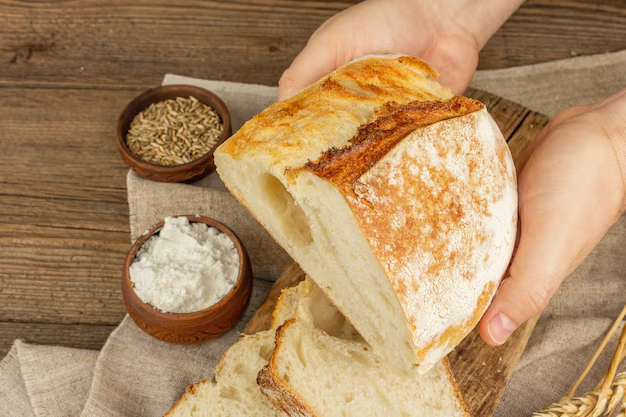Your Guide to Can Diabetics Eat Sourdough Bread
What You Get:
Free Guide
Free, helpful information about Diabetes FAQ and related Can Diabetics Eat Sourdough Bread topics.
Helpful Information
Get clear and easy-to-understand details about Can Diabetics Eat Sourdough Bread topics and resources.
Personalized Offers
Answer a few optional questions to receive offers or information related to Diabetes FAQ. The survey is optional and not required to access your free guide.
Is Sourdough Bread Safe for Diabetics? Discover What You Need to Know
For those navigating the complexities of diabetes, managing what you eat can often feel like treading through a dietary minefield. Among the myriad of questions diabetics face, one perennially intriguing topic is whether sourdough bread can fit into a balanced, diabetic-friendly diet. With its tangy flavor and artisanal charm, sourdough bread has surged in popularity, but how does it stack up nutritionally for those with diabetes?
Understanding Sourdough
Sourdough bread differs from regular bread primarily in its preparation method, which involves natural fermentation. This fermentation process breaks down some of the carbohydrates and gluten, leading to a bread that is lower on the glycemic index than many standard white or whole-wheat varieties. A low glycemic index means sourdough is less likely to cause fast spikes in blood sugar levels—an essential consideration for diabetics.
Moreover, the beneficial bacteria that aid in fermentation could potentially improve gut health, which plays a role in overall metabolic and blood sugar regulation. However, it's crucial to approach sourdough bread with a sense of moderation and an understanding of its overall carbohydrate content.
Portion Control is Key
Diabetics must remain vigilant about portion control. While sourdough bread might have a more favorable glycemic profile, it still contains carbohydrates that can affect blood sugar levels. As a rule of thumb, one small slice of sourdough can be a reasonable portion, though individual responses can vary. Monitoring your blood sugar levels before and after consumption will help determine how much sourdough is appropriate as part of your diet.
Nutritional Value Alerts
When considering incorporating sourdough into your diet, keep an eye on:
- Ingredients: Opt for sourdough made from whole grains without added sugars.
- Quality: Homemade or bakery sourdough usually offers the most health benefits compared to store-bought varieties, which may include preservatives.
- Accompaniments: Be mindful of what you pair it with, avoiding high-sugar spreads or processed toppings.
Transitioning to Higher-value Topics
Dietary choices are just one aspect of managing diabetes, often intertwined with broader financial and educational challenges. Many diabetics face significant medical expenses, dietary constraints, and insurance hurdles. Fortunately, numerous programs and resources can provide vital support:
Financial and Educational Resources for Diabetics
- 🏥 Government Aid Programs: Medicare and Medicaid offer assistance for diabetes-related expenses, including medical supplies and doctor visits.
- 💳 Debt Relief Options: Consider financial counseling services that specialize in medical debt. Such services can help negotiate bills and payment plans.
- 🎓 Educational Grants: Organizations provide scholarships and grants to cover educational needs, helping diabetics pursue studies in health management or other fields.
- 📈 Credit Solutions: Building or repairing credit can be essential, especially when faced with unexpected health costs. Explore secured credit cards for rebuilding credit history.
- 📑 Nonprofit Assistance: Look for local and national nonprofits that offer free educational resources, dietary planning, and financial guidance tailored to diabetic individuals.
Navigating the landscape of diabetes management requires balancing diet, financial planning, and educational pursuits—all of which play a pivotal role in leading a healthy, empowered life. Embracing resources tailored to your unique situation can make a world of difference, much like choosing the right loaf of bread for your meal.
What You Get:
Free Diabetes FAQ Guide
Free, helpful information about Can Diabetics Eat Sourdough Bread and related resources.

Helpful Information
Get clear, easy-to-understand details about Can Diabetics Eat Sourdough Bread topics.

Optional Personalized Offers
Answer a few optional questions to see offers or information related to Diabetes FAQ. Participation is not required to get your free guide.


